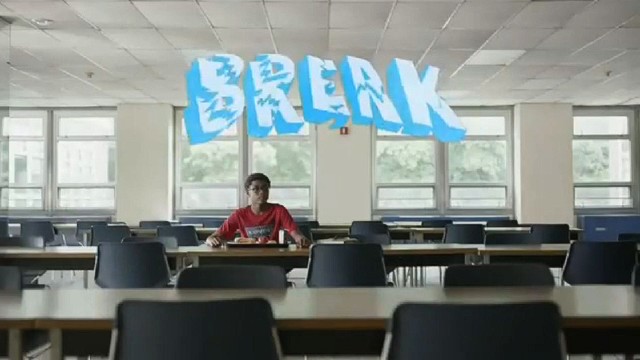Story highlights
- "School refusal behavior" is now diagnosed more often than in past decades
- The author dealt with the issue when she was a high school freshman
- An expert in the subject advises that it is crucial to address the problem
- Schools, psychologists and parents can work together to help the child reintegrate
School hurt so much, I just stopped going.
In these enlightened times, my condition would likely be swiftly identified as "school refusal behavior," treated with care and skill and billed to my parents' insurance under DSM-5 code 309.21: separation anxiety disorder. The root cause might be fear of academic failure, trauma associated with the location, worry over leaving a parent's protective sphere or upset caused by unkind classmates, but the outcome is the same: It's not that the child won't go to school, it's that they simply can't.
In the mid-1980s, as a panicky, sensitive freshman being systematically bullied and beaten by my jealous best friend, all I knew was that the act of exiting my home and pulling into the school entrance caused every last spark of energy within me to short circuit and drain from my body. And once "Elle," the name I'll use for my friend, learned to infiltrate the fortress of my home with strategically timed phone calls and wicked notes slipped in with the regular mail -- thank goodness the Internet wasn't yet available as an efficient conduit of cruelty -- summoning the strength to leave my bed consumed my allotment of will for the day.
School attendance -- let alone social obligations like new friendships, drama club and cheerleading squad (which I'd made and Elle had not, which played no small part in her vendetta against me) -- just seemed like a play acted out by the normal people on the other side of the thick, glass fish tank in which I now lived. If it seems odd that someone so young would be capable of such deliberate malice, or that I'd still have thought of her as my best friend, I'm just going to take it for granted that you never logged time as a teenage girl.
It was assumed, of course, that I was sick. Why else would an active, outgoing, seemingly cheery girl who'd tested at the top of her class, made the squad, gotten her first kiss and had her whole future glittering in Technicolor in front of her just suddenly fade to gray? (Or "gricky" as I came to call the low, leaden cloud that crushed me to the mattress, or the couch or floor, whatever was handy.)
I did not want to be this way: for the excruciating ache and dullness of every second I was conscious, for the shame I felt for letting someone else's petty cruelty chip at my self-worth, for not hitting back, for not being able to just snap out of it through force of will.
And perhaps most of all, for the terror and pain of my parents who had to watch their daughter drowning in front of them, just out of their grasp, unable to pull her to safety.
As the half-day absences began to rack up, 62 of them in a semester, my parents did their best to keep me tethered to daily life -- keeping up with school assignments, seeing a few selected friends (one of whom was unknowingly a mole for Elle -- "Hey, I got this note to give to you...") and even receiving the Catholic church's Anointing of the Sick from our parish priest. They also sought an enemy they could fight -- a physical root to the problem -- and enlisted my pediatrician, who ran test after test after test until she finally had an answer.
Her face twitched with exhaustion when she finally delivered her diagnosis. She'd stayed up all night, unable to sleep as she waited for the blood results. I was sick indeed -- not mono, not leukemia, no dread disease of the body at all -- nothing that could be decimated in a dose, not something immediately fatal.
"I have someone for you to go and talk to," she said.
A child psychiatrist rowed me back onto dry land. With a few weeks of talking and tears (and some terrible 1980s tricyclic antidepressants that I quickly threw away), we worked together to patch the cracks and strengthen me for the return journey to school and to teenage life. What I didn't anticipate -- in addition to algebra being so freaking hard to catch up on -- was how hard the wounds would scar over.
While it was a jolt to see Elle the first time, she wasn't the gigantic, poisonous gorgon she'd swelled to in my imagination; she was a small, scared, insecure girl who'd needed to smash me down in order to feel good about herself. When she tried to pull me outside during lunchtime and deliver her usual spiel about how much everyone supposedly loathed me and made fun of me behind my back (and possibly smack me a few times), I simply looked through her. I'd been warmly welcomed by students and teachers alike, and with the psychiatrist's help, I was finally able to let in the light -- even if I never mastered algebra.
There are a million, billion Elles out there, waiting to prey -- as well as other reasons why a child might resist going to school. Dr. Stephanie Mihalas, a licensed psychologist and nationally certified school psychologist in Los Angeles, offered insight and advice for parents and educators dealing with a child going through school refusal.
A parent should:
1. Get help for their child immediately, and take concerns seriously, so the situation does not turn into full blown school refusal. No matter the root cause or how the symptoms manifest, he or she is still crying out for help. "Forcing or throwing a kid back into a system that isn't working is going to create more chaos rather than addressing the core issues," Mihalas advises.
2. It's crucial to "identify the underlying problem," Mihalas says. Is the child afraid of school bullying, having problems with academic tasks or facing separation anxiety and fears that something will happen to them or the parent upon separation? Did a trauma happen in the proximity of the school that has caused fear to attend school? If parents do not find out the function of the behavior, any plan developed collaboratively with the school and psychologist will be moot.
3. Work with the school and psychologist to solve the issues that may be causing the behavior, and maintain ties to the school. Schools should send work home and "create a home-school log whereby the teacher continues to speak with the student and form a relationship," Mihalas says. This way the child will feel safe upon return and still have a connection with the faculty and students.
4. Determine if there is anything in the family system that may be contributing to the child's refusal to go to school. Often parents assume that the school or their child are the primary reason for school refusal behavior when, in fact, parents often contribute to or exacerbate the behavior. "Parental behavior change is a big component in the treatment process," Mihalas says.
5. Resist the urge to coddle the child and "reward" them for staying home. Keep him or her on a schedule that reflects the school day, and if possible, maintain peer relationships through extracurricular activities, and, if need be, through social media like Skype or FaceTime.
Families, too, can plan for reintegration, Mihalas says.
As reintegration begins, the child should begin to go back and forth to school in the morning to drop off homework assignments and pick up new ones. This keeps a connection with the school and reinforces the understanding that the family is not giving up on the possibility that the child WILL be going back to school.
Re-entry may have to be done in stages, but it's helpful to have an assigned "buddy" to get them through the day, to have special responsibilities (such as handing out books or collecting papers) so they feel useful in the classroom, and some sort of established sign to indicate to a teacher that they need a break from activities.
Mihalas notes that gradual re-entry is important depending how long the child has been out of school. "It might involve going to the school campus for 10 minutes, saying 'hi' to students, then leaving." The student might enter the classroom for 15 minutes for homeroom, moving up to one hour, then two hours, until the whole school day is over. It's important to monitor the child's stress reactions and connections with peers and teachers, but no matter how small or brief the progress -- it's a step toward recovery.
Follow CNN Living on Facebook, or Kat Kinsman @kittenwithawhip on Twitter.












